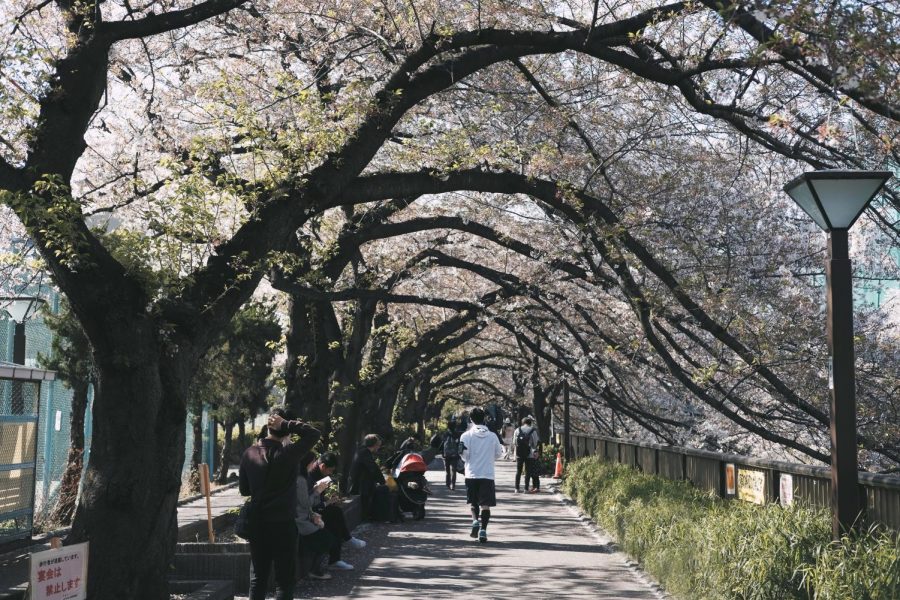Behind This Year’s Early Sakura Bloom
April 29, 2021
Sakura: For many here in Japan, they symbolize impermanence, spring, and a new school year. Upon viewing a sakura tree in full bloom, we appreciate nature and its wondrous beauty. The sakura schedule in Japan has remained relatively stable in 1,200 years of historical records, with trees blooming reliably from early-to-mid April. However, this year Tokyo saw its sakura in bloom beginning on March 22, the second-earliest date ever recorded.
In the past century throughout Japan, cities have witnessed consecutive premature sakura blooms. This year marks one of the earliest average bloom, 10 days ahead of the recent 30-year average. Researchers point to global warming as the cause: Many plants base their life-cycle around how warm their environment is; if the climate is warm enough for a stable period of time, plants will begin their bloom and unravel their leaves, even if the date on the calendar points to December. As sakura are highly sensitive to changes in climate and weather, the rising global temperature explains the earlier annual full blossoms.
The effect of climate, though, is not limited to plants. A significant number of insects also react differently to rising temperatures. However, insect species react differently to higher temperatures. What this means for much of nature is that parts of the ecosystem may be active while the other may not be. Where flowers may be in full bloom, there may be no insects to pollinate them, and where insects may begin to awaken, there may not be enough plants to feed on. This ecological problem is one that indicates a possible future of non- or semi-functioning ecosystems around the globe.
Besides people in Japan having to schedule earlier hanami gatherings, this biological change has cultural implications. Sakura are often seen as the paragon of Japanese natural beauty and feature prominently in art, culture, and media. A change in the association of sakura blooms with spring may mean that poems and art describing their relationship become an artifact of the past. Perhaps in years to come, this additional factor of impermanence will give further value to the annual sakura bloom.





















Sabi Turkki • Apr 30, 2021 at 2:57 PM
I really liked your article! I find it interesting how the time that sakura blossoms can affect culture. I also like how this article raises awareness of global warming and how it harms many other plants and not only sakura.
William Michels • Apr 29, 2021 at 12:48 PM
This article was informative and concise. It provided more information on an already popular and current topic. It Is interesting to know how much affects the sakura bloom, and how much it has been researched.
Bryce Hartz • Apr 29, 2021 at 12:47 PM
I really enjoyed how you gave a background on Sakura trees through scientific fact. The last part that offered a prediction was also interesting because it invited me to give my own prediction.
Hiroya • Apr 29, 2021 at 12:46 PM
I find it very interesting that the blossoming of sakura trees can be affected by global warming. I think your writing is very good and delivers information clearly.